
HE final line of Lucille Clifton's poem "Mulberry Fields"-"bloom how you must I say" — serves as a fitting epigraph to Camille T. Dungy's new book, Soil: The Story of a Black Mother's Garden, published by Simon & Schuster in May. At once invitation and imperative, those six words predict the book's narrative arc and embody the multiplicity of Dungy herself as poet, activist, mother, sister, historian, and gardener. They also beckon readers to come along on this journey where, as she writes, "Gardens, history, and hope are the same. Though once dearly beloved, if left untended, without anyone's dedication and care, much will be totally lost." Tending her own garden outside her home in Fort Collins, Colorado, as well as a far wider literary and cultural landscape, Dungy proves a trustworthy steward.
In the ten years that she, her husband, Ray, and their daughter, Callie, have lived in Fort Collins, where she is a University Distinguished Professor at Colorado State University, Dungy has bloomed as both gardener and writer. The seed of her interest in the natural world may have been planted by her father, Dr. Claibourne Dungy, a pediatrician by education and training as well as a gardener, she says, "because it brought him joy." While she has kept houseplants since her first apartment in Greensboro, when she was a graduate student at the University of North Carolina, her current home marks the first time she's had the land and the intention to stay long enough to watch a garden grow into maturity. The space is only two-fifths of an acre, which includes the house, but it's enough. "My husband is from New York City, and we moved here from the Bay Area," she says, "so taking care of an acre of land was unfathomable to him and exhausting-sounding to me. I can do a lot with this space."
This story is from the May - June 2023 edition of Poets & Writers Magazine.
Start your 7-day Magzter GOLD free trial to access thousands of curated premium stories, and 9,000+ magazines and newspapers.
Already a subscriber ? Sign In
This story is from the May - June 2023 edition of Poets & Writers Magazine.
Start your 7-day Magzter GOLD free trial to access thousands of curated premium stories, and 9,000+ magazines and newspapers.
Already a subscriber? Sign In

Literary MagNet
When Greg Marshall began writing the essays that would become his memoir, Leg: The Story of a Limb and the Boy Who Grew From It (Abrams Press, June 2023), he wanted to explore growing up in Utah and what he calls \"the oddball occurrences in my oddball family.\" He says, \"I wanted to call the book Long-Term Side Effects of Accutane and pitch it as Six Feet Under meets The Wonder Years.\" But in 2014 he discovered his diagnosis of cerebral palsy, information his family had withheld from him for nearly thirty years, telling him he had \"tight tendons\" in his leg. This revelation shifted the focus of the project, which became an \"investigation into selfhood, uncovering the untold story of my body,\" says Marshall. Irreverent and playful, Leg reckons with disability, illness, queerness, and the process of understanding our families and ourselves.
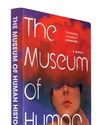
THE MEUSEUM OF HUMAN HISTORY
READING The Museum of Human History felt like listening to a great harmonic hum. After I finished it I found the hum lingering in my ears. Its echo continued for days.
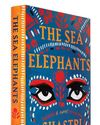
The Sea Elephants
SHASTRI Akella's poised, elegant debut, The Sea Elephants, is a bildungsroman of a young man who joins a street theater group in India after fleeing his father's violent disapproval, the death of his twin sisters, and his mother's unfathomable grief.
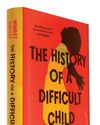
The History of a Difficult Child
MIHRET Sibhat's debut novel begins with God dumping rain on a small Ethiopian town as though. He were mad at somebody.
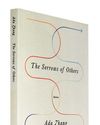
The Sorrows of Others
AS I read each story in Ada Zhang’s brilliant collection, The Sorrows of Others, within the first few paragraphs— sometimes the first few sentences— I felt I understood the characters intimately and profoundly, such that every choice they made, no matter how radical, ill-advised, or baffling to those around them, seemed inevitable and true to me.
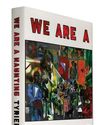
We Are a Haunting
TYRIEK White’s debut novel, We Are a Haunting, strikes me as both a love letter to New York City and a kind of elegy.

RADICAL ATTENTION
IN HER LATEST BOOK, THE LIGHT ROOM: ON ART AND CARE, PUBLISHED BY RIVERHEAD BOOKS IN JULY, KATE ZAMBRENO CELEBRATES THE ETHICAL WORK OF CAREGIVING, THE SMALL JOYS OF ORDINARY LIFE, AND AN ENGAGEMENT WITH THE NATURAL WORLD WITHIN HUMAN SPACES.

The Fine Print
HOW TO READ YOUR BOOK CONTRACT
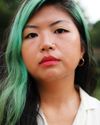
First
GINA CHUNG'S SEA CHANGE
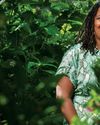
Blooming how she must
WITH ROOTS IN NATURE WRITING, ENVIRONMENTAL JUSTICE, POETRY, AND PHOTOGRAPHY, CAMILLE T. DUNGY'S NEW BOOK, SOIL: THE STORY OF A BLACK MOTHER'S GARDEN, DELVES INTO THE PERSONAL AND POLITICAL ACT OF CULTIVATING AND DIVERSIFYING A GARDEN OF HERBS, VEGETABLES, FLOWERS, AND OTHER PLANTS IN THE PREDOMINANTLY WHITE COMMUNITY OF FORT COLLINS, COLORADO.